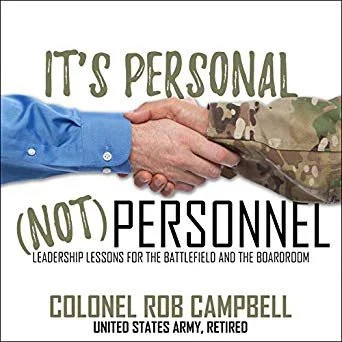Words are cheap. Definitions are expensive.
"Clarity precedes success." Robin Sharma
"It's all about culture in the workplace," I heard uttered from a panelist at a conference I attended. The audience was receptive but I wondered if they truly understood what culture meant or if they could define it. I wondered if the panelist could define it. I was doubtful. Words are cheap. Definitions are expensive.
Words are indeed, easy to say but too often those saying them do not understand what they mean. The panelist used a fashionable term, 'culture,' a word I've heard frequently used yet, I've seen leaders who fail to understand it and create it. Merriam Webster defines culture as, "the customary beliefs, social forms, and material traits of a racial, religious, or social group or a set of shared attitudes, values, goals, and practices that characterizes an institution or organization." In my expensive quest for clarity and definition, I turned to Daniel Coyle's book, "The Culture Code," where he posits, "Culture is not something you are - it is something you do." The book is superb for culture clarity and meaning but, of course, it cost me time and money.
I've defined culture for companies I have consulted by telling a story. "When you walk into ABC Company, you'll experience a team of people committed to a common mission of customer service. Cooperation and collaboration are evident in the behaviors of its people. You feel like you are the focus of everything they do. Team members are free to speak up and be critical behind a collective spirit of achieving excellence. It feels like a family."
Highlighted in this statement are the behaviors of the group and each of them requires definition. What, exactly does Cooperation and Collaboration look like in company ABC? The words are cheap but leader must expend time and energy explaining how a person would cooperate and collaborate in the company. "Kate, as the sales team executes our strategy, you'll need to need to work jointly with them to achieve our revenue goals. This may mean a shift in the application of our strategy to adjust to customer demands. Remember, our shared goal is $xxx,xxx in revenue this quarter. Collaborate with them, meaning, team with them to find creative ways to achieve our ends."
Here is another example. "Teammates, we need to fix our company culture!" 'Fix' is cheap and easy to state. Defining it requires a leader to explain what has been accomplished when culture is fixed. It requires him or her to expend time and energy outlining what 'fix' means. How and when does the group know culture has been fixed?
Are you a leader? If so, save your money because words are cheap, definitions are expensive.
Make it Personal!
Rob
Rob Campbell

